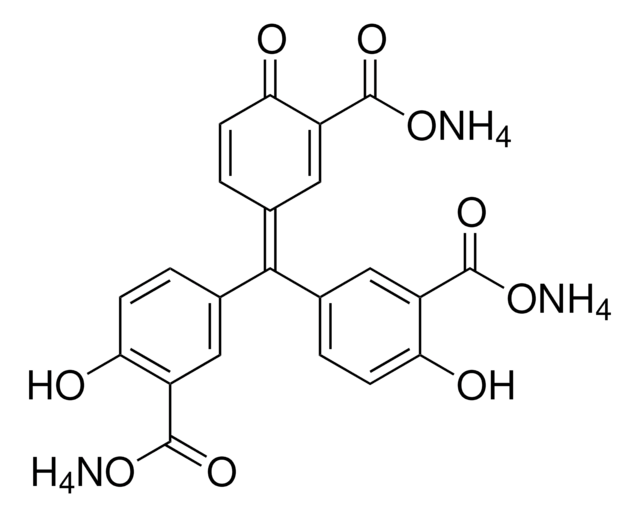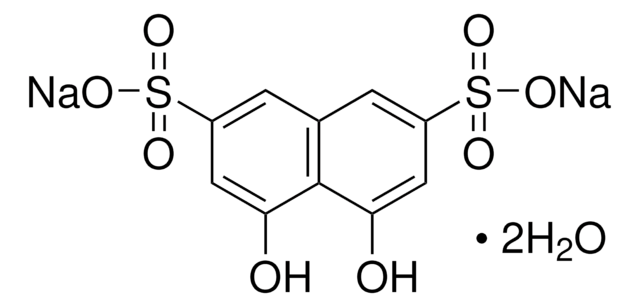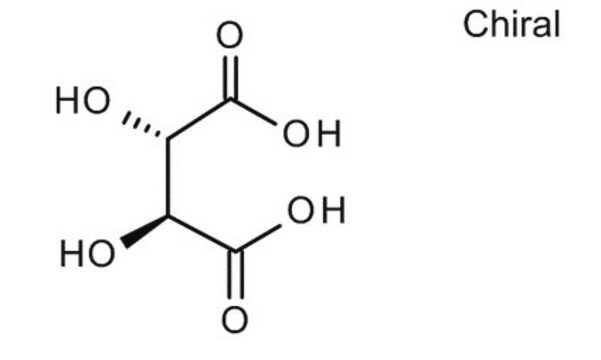01-3110
Aluminon
JIS special grade
Synonym(s):
Aurintricarboxylic acid ammonium salt, ATA, Aluminon, Ammonium aurintricarboxylate
About This Item
Recommended Products
grade
JIS special grade
form
powder
availability
available only in Japan
mp
220-225 °C (dec.) (lit.)
solubility
water: soluble
shipped in
ambient
storage temp.
room temp
SMILES string
N.N.N.OC(=O)c1cc(ccc1O)\C(c2ccc(O)c(c2)C(O)=O)=C3/C=CC(=O)C(=C3)C(O)=O
InChI
1S/C22H14O9.3H3N/c23-16-4-1-10(7-13(16)20(26)27)19(11-2-5-17(24)14(8-11)21(28)29)12-3-6-18(25)15(9-12)22(30)31;;;/h1-9,23-24H,(H,26,27)(H,28,29)(H,30,31);3*1H3
InChI key
AIPNSHNRCQOTRI-UHFFFAOYSA-N
Looking for similar products? Visit Product Comparison Guide
Biochem/physiol Actions
Other Notes
Storage Class Code
11 - Combustible Solids
WGK
WGK 2
Flash Point(F)
Not applicable
Flash Point(C)
Not applicable
Personal Protective Equipment
Regulatory Listings
Regulatory Listings are mainly provided for chemical products. Only limited information can be provided here for non-chemical products. No entry means none of the components are listed. It is the user’s obligation to ensure the safe and legal use of the product.
JAN Code
01-3110-2-25G-J:
Choose from one of the most recent versions:
Already Own This Product?
Find documentation for the products that you have recently purchased in the Document Library.
Our team of scientists has experience in all areas of research including Life Science, Material Science, Chemical Synthesis, Chromatography, Analytical and many others.
Contact Technical Service






